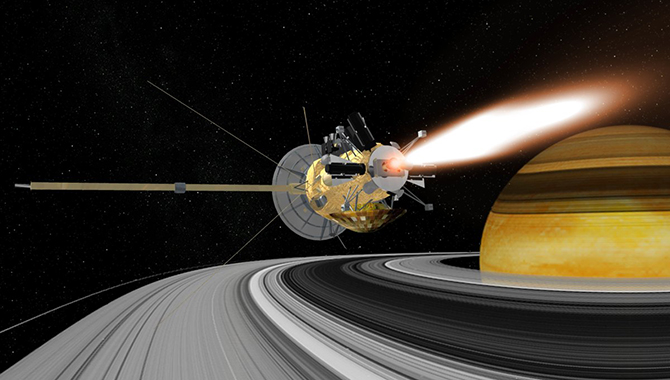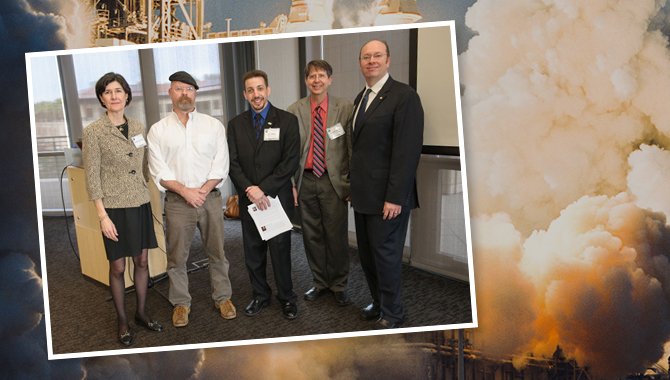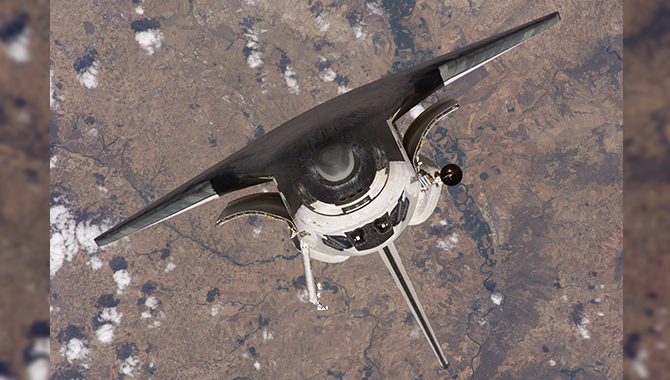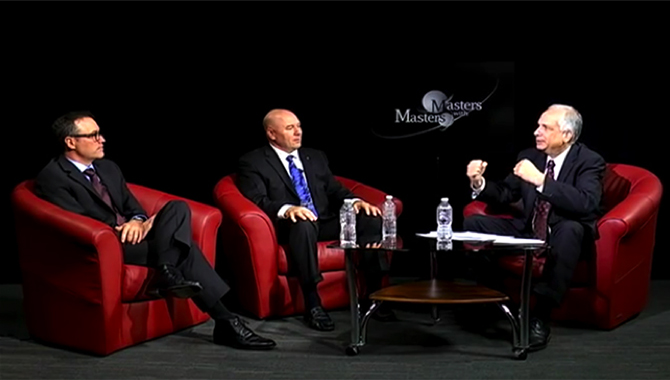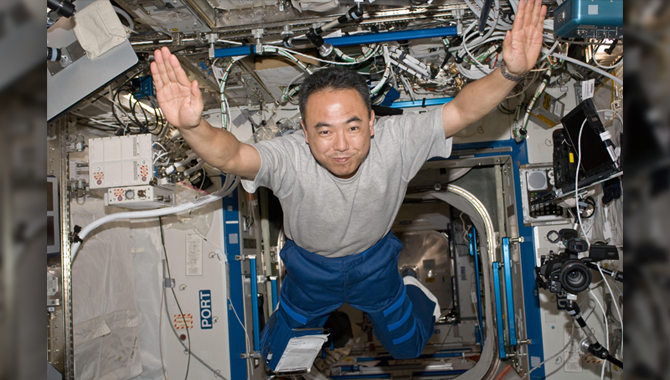
Japan Aerospace Exploration Agency astronaut Satoshi Furukawa may not be Superman, but in the microgravity of space, he can fly (well, almost).
Photo Credit: NASA
Brainiac makes a big mistake when he hoards Earth’s knowledge.
In Stolen Memories, writer Rich Fogel casts Brainiac, a super-computing android, to be a brilliant foil for Superman. Brainiac gets it into his metallic head that destroying planets and their inhabitants—but only after downloading all the knowledge from those worlds—is a stellar scheme. Superman figures out Brainiac’s perverse plot as he readies his deadly archiving of Earth’s collected knowledge into a bright sphere. During the inevitable mêlée, Brainiac monologues as super-villains do, informing Superman that “the fewer beings who have the knowledge, the more precious it becomes.” Superman retorts with, “You’re insane,” and then the Man of Steel tries to punch some sense into the knowledge-hoarding, genocidal robot.
Although it is hard to admit being a knowledge-hoarder, non-super-villains often hold onto knowledge for various reasons. One reason is simply that some knowledge is intellectual property, and to best protect the interest of a business or other entity, sharing that knowledge freely is not considered “good business” at the present juncture. Another motivation, though not so easy to appreciate but based on an akin concept of protecting one’s interest, is that some people feel if they share what they know, they will no longer be seen as “the guru” who knows something others do not. Knowledge makes us special. Knowledge is power. Some people even fear that if they share their knowledge, they will become replaceable: someone else can now do their job if how the job is done is shared. Another reason people don’t share what they know is that they fear their knowledge will then be used without attribution and others will get credit.
One particularly defensive reason to hold onto knowledge is we are not even sure if what we think of as knowledge is in fact correct, that it is better to work off incorrect knowledge that no one else knows about, as opposed to continually working off of wrong knowledge that others could prove to be incorrect. Another defensive motivation is that if we share how much of what we know, we will show what we do not know. Perhaps the best of all the paranoid reasons to “knowledge hoard” is that others we cannot trust will misuse it for nefarious reasons. Sticking with the allegorical world of Superman, we would not want to be the one to tell Lex Luthor about kryptonite.
More often than not, people do not share knowledge because they simply do not know how to share knowledge efficiently, given various constraints, most notably the time to do so. Fortunately, help is on the way. If those without “know-how” to share both “know-how” and “know-what” (and they work for NASA), the Knowledge Network can help them. The Knowledge Network is there to help NASA share what it knows, and help those willing to share their knowledge make the time it takes to share knowledge as efficiently as possible.
This month, many of the advocates within the Knowledge Network met for a Knowledge 2020 event at Ames Research Center. One of the topics addressed was Search. Search is always on the minds of knowledge practitioners, especially in this age when there is so much to search through. We are riding waves of the data deluge. Recently, John Sprague and Brian Thomas discussed “What is the Big Deal about Big Data” during a Masters with Masters Interview event. Sprague and Thomas agreed on many concepts, but one concept in particular conveyed that we can have data without knowledge, but we cannot have knowledge without data. One of the many mechanisms to help turn data into knowledge is directly related to the concept of Search. Big Data is such an enormous issue that other Masters with Masters are now in the planning stages to be filmed next year.
The holiday season is tantamount to the gift-giving season: we try to give of ourselves to others, and with the new year, we strive to give ourselves gifts by making resolutions. One of the ways to give is by sharing stories. Many of this season’s movies boost themes of trust building and generosity. Star Wars reawakens. Superman lends a helpful hand or two to those brave and bold enough to attempt escaping gravity’s pull. Enjoy the season, and remember Knowledge Services are here to help you keep your resolutions to share your knowledge in 2016.






